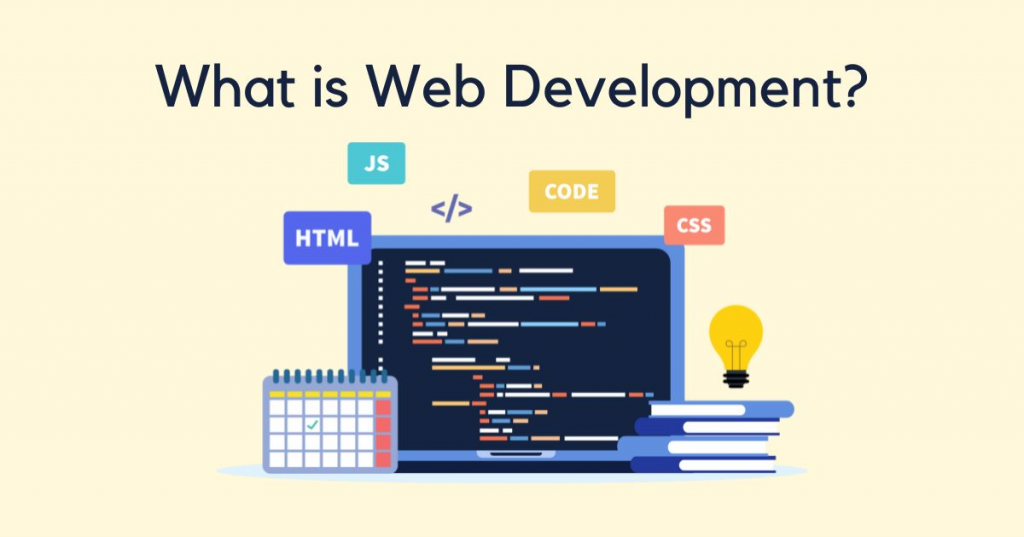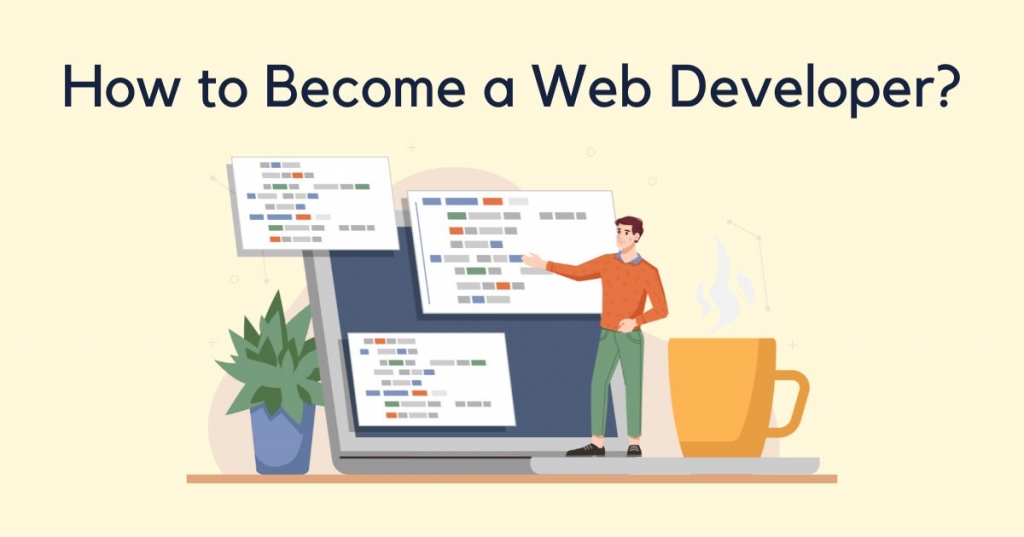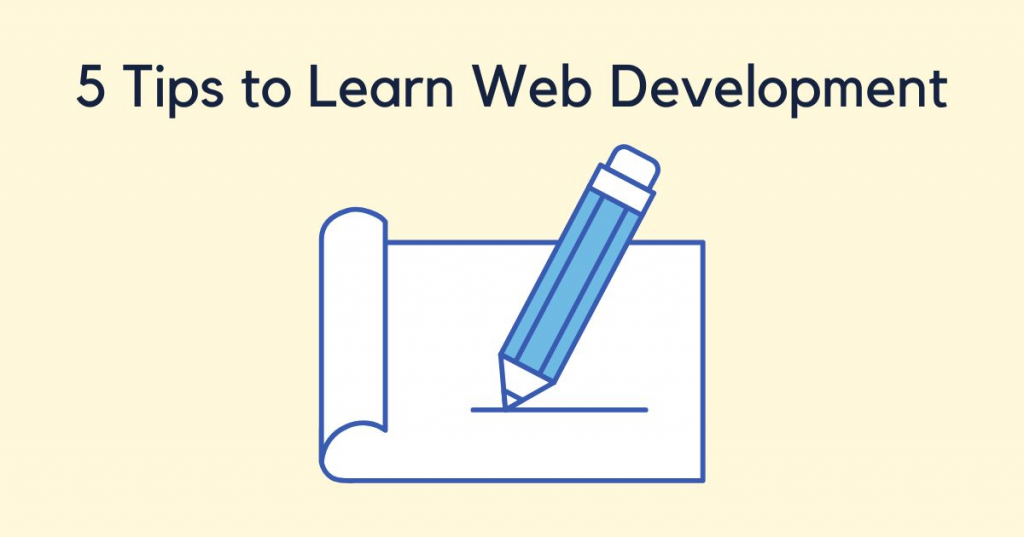What is Web Development? How to Become a Web Developer?
The internet world is vast and ever-evolving, and the websites we interact with daily are the products of skilled individuals called web developers. But what exactly is web development, and how can you become one of these digital architects? This blog delves into these questions and provides a roadmap for aspiring web developers. Keep reading!
What is Web Development?

According to the Techopedia, web development encompasses "the work involved in developing a website for the Internet (World Wide Web) or an intranet (a private network)". This dynamic field can produce anything from a simple static webpage to complex social media platforms and online stores.
To put it more simply: Web development is the process of creating and maintaining websites. This encompasses various aspects, from building the website's structure and layout to adding functionality and ensuring it functions seamlessly across different devices.
This field can be divided into two main areas: client-side and server-side development.
Client-side development, also known as front-end development, focuses on what users see and interact with directly on the web page, such as the layout, buttons, and images.
On the other hand, server-side development, or back-end development, deals with database management, ensuring that all user data is stored, processed, and retrieved efficiently.
Web development can produce various types of websites, ranging from static websites that display the same content for all users to dynamic web applications that adjust based on user interaction. As the internet continues to grow, so does the importance of web development in creating functional, secure, and responsive websites and web applications that meet both business and user needs.
Here's a breakdown of what web developers typically do:
Front-end web development
As Nielsen Norman Group, a leader in user experience research, states: "Users judge a website in about 50 milliseconds, basing their decision on its aesthetics and usability". Front-end developers are the ones wielding this digital brush, crafting user experiences that are not only beautiful but also intuitive and engaging.
This involves focusing on the visual elements and user experience of a website. They use programming languages like HTML, CSS, and JavaScript to design the website's layout, style, and interactivity.
Key aspects of front-end development:
Creating user interfaces (UIs): Front-end developers use their skills to design the layout, buttons, menus, and other interactive elements that users see and interact with on a website.
Ensuring a positive UX: They prioritize user experience by making sure the website is intuitive, easy to navigate, and visually appealing across different devices.
Knowledge of web performance: Optimizing website loading speed and responsiveness for a smooth user experience.
Familiarity with frameworks and libraries: Many developers use pre-built code libraries and frameworks to streamline development and create advanced features.
Back-end web development
As Upwork states, back-end development is the "server-side logic that powers websites and apps from behind the scenes". This deals with the server-side of a website, handling data storage, processing, and logic. Back-end developers use programming languages like Python, Java, or PHP to build the core functionalities and ensure smooth communication between the website and the database.
They are also responsible for:
Creating and managing databases: This involves choosing the appropriate database type (relational, NoSQL, etc.), designing the database schema, and writing queries to manipulate and retrieve data.
Developing server-side APIs: APIs (Application Programming Interfaces) act as intermediaries, allowing the front-end (what users see) to interact with the back-end and access data. Back-end developers build and maintain these APIs to ensure secure and efficient data exchange.
Handling user authentication and authorization: This involves creating secure login systems, managing user accounts and permissions, and ensuring only authorized users can access specific features or data.
Ensuring scalability and performance: Back-end developers implement solutions to handle high volumes of traffic and optimize code for smooth website operation.
Integrating external services: Many websites connect with third-party services like payment gateways, social media platforms, or analytics tools. Back-end developers handle the integration of these services, ensuring smooth interaction and data flow.
Full-stack web development
Full-stack web development refers to the end-to-end development of web applications. Unlike specialized front-end or back-end developers, full-stack developers possess expertise in both areas, making them highly versatile and valuable assets in the web development landscape.
Essentially, a full-stack developer can:
Craft the user interface (UI) and user experience (UX) of a website using technologies like HTML, CSS, and JavaScript frameworks like React or Angular. This involves designing the visual elements, interactive features, and overall user journey.
Build the server-side logic and functionality using programming languages like Python, Java, or PHP. This encompasses handling data storage, processing user requests, and interacting with databases.
Connect the front-end and back-end seamlessly to ensure smooth user interaction and data flow.
Benefits of full-stack development:
Versatility: Full-stack developers can work independently on entire projects or collaborate effectively with other developers.
Efficiency: They can understand the entire development process, leading to better communication and faster project completion.
Demand: Full-stack developers are highly sought after in the job market due to their diverse skill set.
In addition, there are other developers with expertise in security and AI development on the web. To learn more about these developers, refer to our article "What is a Developer? 12 Types of Developers"
Now, let's learn how to become a web developer!
How to Become a Web Developer?

The path to becoming a web developer is flexible and can cater to different learning styles and preferences. Here are the common approaches:
Formal education
While passion and self-learning are valuable assets for aspiring web developers, a strong foundation in computer science and related fields can provide a significant advantage in the job market.
According to a report by the Bureau of Labor Statistics, employment of computer and information research scientists is projected to grow 23 percent from 2022 to 2032, much faster than the average for all occupations.
Formal education through associate's degrees, bachelor's degrees, or certificate programs can equip you with the technical skills and theoretical knowledge desired by employers.
This section will delve into the various formal education options available to kickstart your journey as a web developer.
For details, formal education, like earning a bachelor's degree in computer science, web development, or a related field, provides a strong foundation in several key areas:
Programming Languages: You'll gain proficiency in various programming languages, giving you the ability to build software applications, websites, and other digital tools.
Software Development Principles: You'll learn about the core principles and methodologies used in software development, allowing you to design, develop, and maintain software efficiently.
Critical Thinking: You'll develop critical thinking skills, essential for problem-solving, analyzing complex systems, and designing innovative solutions.
Bootcamps
These intensive, short-term programs offer accelerated learning opportunities, typically lasting 3 to 6 months, and equip you with the practical skills and portfolio pieces needed to enter the job market.
They offer a unique learning experience compared to traditional education:
Focus on practical skills: Bootcamps prioritize teaching practical skills directly applicable to your chosen field, like coding languages, data analysis tools, or marketing software. This equips you to hit the ground running in your new role.
Immersive learning experience: Bootcamps provide an immersive learning environment, often involving hands-on projects, portfolio building, and collaboration with peers. This intensive approach allows you to deeply engage with the material and quickly gain practical experience.
Career support: Many bootcamps offer career support services, including resume and portfolio reviews, interview preparation, and job placement assistance. This comprehensive approach helps you transition smoothly into your new career.
It's important to carefully research different bootcamps to find one that aligns with your learning goals, budget, and schedule.
Self-learning
Whether you're a complete beginner or have some basic coding knowledge, self-learning can empower you to turn your passion for web development into a fulfilling career.
As Zac Gordon, from the Self-Made Web Designer podcast, puts it, "You can learn web development on your own. Plenty of people have done it, and I'bet there's nothing special about any of them."
The internet offers a plethora of free and paid resources, including online courses, tutorials, and documentation. This approach requires dedication, self-discipline, and the ability to manage your learning journey.
Some free and paid resources, including:
Online courses: Platforms like SkillTrans, Coursera, edX, and Udemy offer a vast library of courses on various topics, from beginner to advanced levels. Many of these courses are taught by renowned professors and experts, providing a structured learning experience.
Tutorials: Websites and channels like YouTube are filled with tutorials on various skills, software, and topics. These can be a great way to learn specific things at your own pace and revisit them as needed.
Documentation: Official documentation from software companies, libraries, and organizations can be invaluable for learning the intricacies of a particular tool or subject. They offer detailed explanations, code examples, and troubleshooting tips.
Regardless of the chosen path, developing a strong portfolio showcasing your web development skills is crucial. This can involve building personal projects, contributing to open-source projects, or taking on freelance work to gain practical experience.
5 Tips to Learn Web Development Effectively

Once you've decided to embark on your web development journey, here are some valuable tips to get you started:
Start with the fundamentals
As the saying goes, "You can't build a house without a foundation." The same applies to web development. HTML (Hypertext Markup Language), CSS (Cascading Style Sheets), and JavaScript are the cornerstones of web development, providing the structure, style, and interactivity for websites.
Begin by learning the core languages: HTML, CSS, and JavaScript.
These form the building blocks of web development and will equip you with the foundation to build upon.
Practice consistently
The key to mastering any skill is consistent practice. Dedicate time daily or weekly to work on projects, complete coding challenges, and experiment with different technologies.
Join the online community
Engage with online communities like forums and online groups dedicated to web development. This allows you to connect with other developers, ask questions, and learn from their experiences.
Build projects
Don't just learn; apply your knowledge by building projects. Start with small, personal projects to solidify your understanding and gradually progress to more complex ones.
Stay updated
The web development landscape is constantly evolving, so staying updated with the latest trends and technologies is crucial. Regularly read industry publications, attend webinars, and participate in online courses to stay ahead of the curve.
To support your learning journey, Skilltrans offers the following recommended courses. Please click on the course name below to learn more:
This course will teach you to use standard web technologies to create an engaging, interactive user experience on the iPad.
We'll be creating an eSales Aid in the course, which is a popular use for sharing information about a company or product on tablet devices. However, the possibilities of this approach are limitless. Use standard web technologies to create interactive books, catalogs, or any interactive project you can imagine. If you can create it on the web, you can create it in a Web App.
Python: Learn Python with Real Python Hands-On Examples
In this course, we will start from the very beginning and go all the way to programming with hands-on examples . We will first learn how to set up a lab and install needed software on your machine. Then during the course, you will learn the fundamentals of Python development.
Web Performance In Practice: Master Core Web Vitals & More
This course has been designed for front-end web developers, I.T. leaders and website owners seeking to master the basics of website performance optimization.
As user experience becomes a cornerstone of digital success, this course offers practical insights into improving website speed and efficiency. Starting with the fundamentals of performance measurements, we delve into Google's Core Web Vitals, tackling Largest Contentful Paint (LCP), First Input Delay (FID), and Cumulative Layout Shift (CLS), along with other vital performance metrics.
Our hands-on lessons guide you through real-world scenarios, from setting up your project for performance tracking to implementing advanced strategies for optimizing images, JavaScript execution, and accessibility.
Final Thoughts
Web development is a rewarding and ever-growing field that offers exciting career opportunities for individuals with a passion for technology and creativity.
By taking the steps outlined above, you can embark on your journey to becoming a skilled web developer and contribute to shaping the digital world of tomorrow. Remember, the learning process is continuous, so stay curious, keep practicing, and enjoy the journey!




Youtube Selected
Its very helpful
Youtube Selected
What do you think
Youtube Selected
I agreee